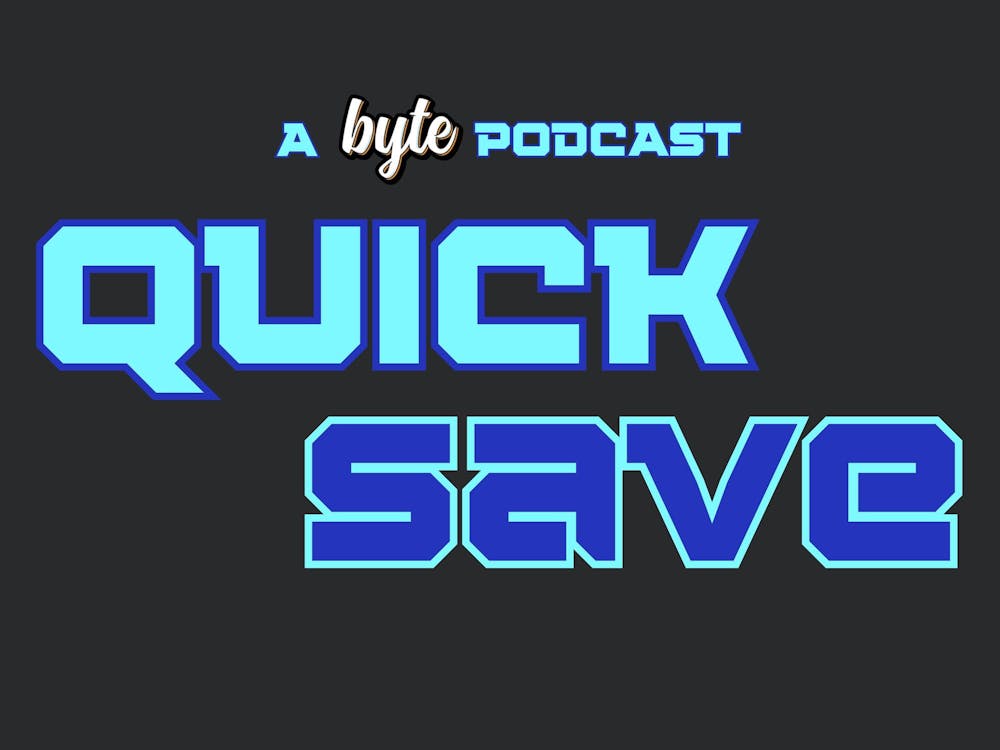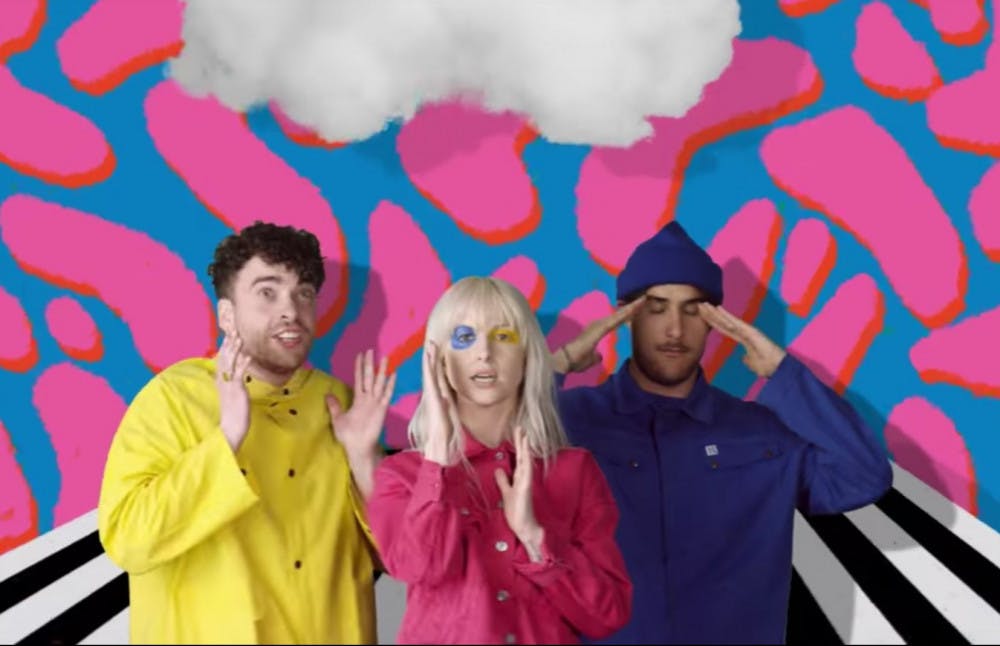by Sarah James
Music.
For some, music is nothing more than noise, merely something to listen to, or a distraction from getting something done. For others, music is an escape, an expression of one’s thoughts and emotions, and a way to communicate on a level that once seemed impossible. It is these people, the ones who find themselves in the melodies and lyrics constructed by their heroes, that are also the first ones to criticize. When an artist releases new music that may seem a little different than their previous work, it is usually the fans who react with an uproar.
 This has been common within music scenes for decades, but the past few months, there have been many artists accused of “selling out,” or conforming to a mainstream sound in order to make money instead of art, and many of these artists come from the alternative or rock scene - the same scene I love to be a part of. All Time Low received criticism a few months ago when they changed labels and released their single, “Dirty Laundry.” Linkin Park was met with outrage when they released “Heavy” back in March. More recently, Fall Out Boy fans were confused and critical after “Young and Menace” dropped, and followers of Paramore cried out for the band to return to their alternative roots after the release of After Laughter. Check the comments of the “Hard Times” music video and you'll see complaint after complaint of wanting the “old Paramore” back. It seems as if the slightest inkling of an alternative artist moving towards pop is only ever met with a negative response.
This has been common within music scenes for decades, but the past few months, there have been many artists accused of “selling out,” or conforming to a mainstream sound in order to make money instead of art, and many of these artists come from the alternative or rock scene - the same scene I love to be a part of. All Time Low received criticism a few months ago when they changed labels and released their single, “Dirty Laundry.” Linkin Park was met with outrage when they released “Heavy” back in March. More recently, Fall Out Boy fans were confused and critical after “Young and Menace” dropped, and followers of Paramore cried out for the band to return to their alternative roots after the release of After Laughter. Check the comments of the “Hard Times” music video and you'll see complaint after complaint of wanting the “old Paramore” back. It seems as if the slightest inkling of an alternative artist moving towards pop is only ever met with a negative response.
 Why is that? Why do fans get so upset when the artists they love switch up their sound? Does sounding like pop automatically mean an artist is selling out? And what about those artists who are constantly breaking the genre barriers? Does genre as we know it have a future in this ever evolving music industry?
Many people view pop music as an easy way out, especially fans who come from more selective music scenes. Pop music isn't difficult; following the formula to create a hit is fairly simple, and most pop artists don't write their own songs. To many, pop music just isn't as artistic. However, sounding more mainstream is not necessarily a sign of selling out. It all has to do with authenticity; was the artist being true to themselves in creating their music? Or were they the mouthpiece of a corporate machine?
In the case of Fall Out Boy, “Young and Menace” was a chance for the band to play with new recording technology while also utilizing the talent they have as a band. While some may see the voice modulation and heavy drop in the chorus as a sign of selling out, any interview with Patrick Stump and Pete Wentz proves that this song is still genuine, still 100% Fall Out Boy. Hayley Williams has been honest about her struggles as an artist, opening up about how she considered quitting after the release of Paramore’s self-titled album in 2014. Though After Laughter is definitely more pop than rock, a little background and a quick look at the lyrics show that this album is genuine. Yet, that doesn't stop fans from complaining.
Maybe this is because we immerse ourselves so fully into music. When we find an artist that speaks to us and then they change, it feels as if we lose parts of ourselves. Personally, I place a lot of who I am as an individual in the artists I love. My friends know me as the girl who loves Twenty One Pilots, and large chunks of my identity reside in the fact that I am part of the Clique.
When an artist drastically changes, fans are quite suddenly left feeling as if they've been abandoned. I would be lying if I said I haven't been critical of artists I love. When Fall Out Boy returned from their hiatus in 2011, all I wanted was to have the old Fall Out Boy back. Yet, over time, I have come to appreciate each era of music this band has offered, and I look forward to the next era of Fall Out Boy with the release of MANIA this fall.
Why is that? Why do fans get so upset when the artists they love switch up their sound? Does sounding like pop automatically mean an artist is selling out? And what about those artists who are constantly breaking the genre barriers? Does genre as we know it have a future in this ever evolving music industry?
Many people view pop music as an easy way out, especially fans who come from more selective music scenes. Pop music isn't difficult; following the formula to create a hit is fairly simple, and most pop artists don't write their own songs. To many, pop music just isn't as artistic. However, sounding more mainstream is not necessarily a sign of selling out. It all has to do with authenticity; was the artist being true to themselves in creating their music? Or were they the mouthpiece of a corporate machine?
In the case of Fall Out Boy, “Young and Menace” was a chance for the band to play with new recording technology while also utilizing the talent they have as a band. While some may see the voice modulation and heavy drop in the chorus as a sign of selling out, any interview with Patrick Stump and Pete Wentz proves that this song is still genuine, still 100% Fall Out Boy. Hayley Williams has been honest about her struggles as an artist, opening up about how she considered quitting after the release of Paramore’s self-titled album in 2014. Though After Laughter is definitely more pop than rock, a little background and a quick look at the lyrics show that this album is genuine. Yet, that doesn't stop fans from complaining.
Maybe this is because we immerse ourselves so fully into music. When we find an artist that speaks to us and then they change, it feels as if we lose parts of ourselves. Personally, I place a lot of who I am as an individual in the artists I love. My friends know me as the girl who loves Twenty One Pilots, and large chunks of my identity reside in the fact that I am part of the Clique.
When an artist drastically changes, fans are quite suddenly left feeling as if they've been abandoned. I would be lying if I said I haven't been critical of artists I love. When Fall Out Boy returned from their hiatus in 2011, all I wanted was to have the old Fall Out Boy back. Yet, over time, I have come to appreciate each era of music this band has offered, and I look forward to the next era of Fall Out Boy with the release of MANIA this fall.
 More and more, we see artists branch out of a genre they had previously ascribed to, only to be met with questions and ridicule. More musicians are taking inspirations from genres of music outside of their own. However, genre in music as we know it is constantly changing. As previously mentioned, I am a huge fan of Twenty One Pilots, a band who has rose to notoriety by creating music influenced by a variety of genres. While they're mostly classified as pop, rock, or alternative, there are heavy electronic, folk, and even reggae vibes to their songs. Maybe this breaking of genre barriers is even more authentic than staying in the lines that radio stations and award shows have drawn for musicians. Maybe artists branching out is actually a means of expression, and not an act of selling out. Maybe, just maybe, the artists we love create music they want to listen to, and all they ever want is for us to listen to it too.
More and more, we see artists branch out of a genre they had previously ascribed to, only to be met with questions and ridicule. More musicians are taking inspirations from genres of music outside of their own. However, genre in music as we know it is constantly changing. As previously mentioned, I am a huge fan of Twenty One Pilots, a band who has rose to notoriety by creating music influenced by a variety of genres. While they're mostly classified as pop, rock, or alternative, there are heavy electronic, folk, and even reggae vibes to their songs. Maybe this breaking of genre barriers is even more authentic than staying in the lines that radio stations and award shows have drawn for musicians. Maybe artists branching out is actually a means of expression, and not an act of selling out. Maybe, just maybe, the artists we love create music they want to listen to, and all they ever want is for us to listen to it too.



















